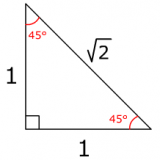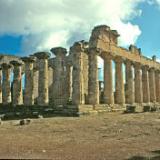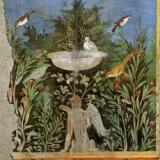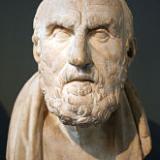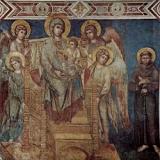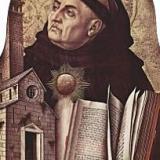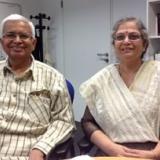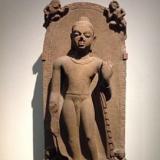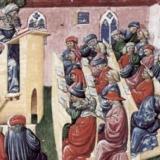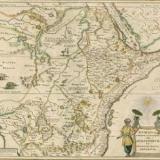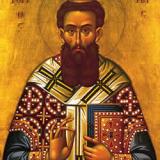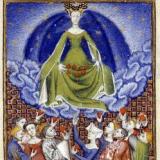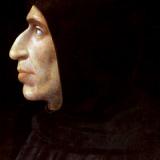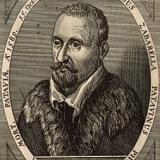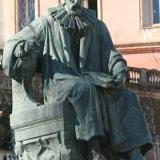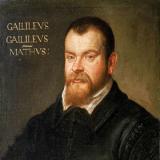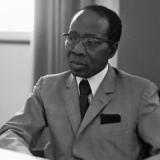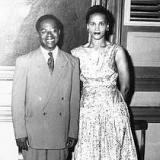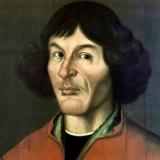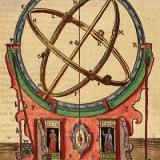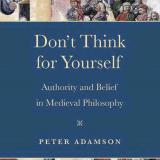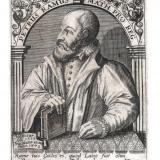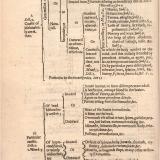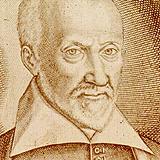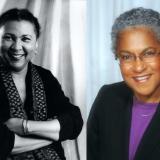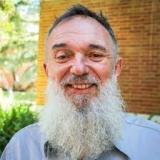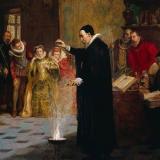Epistemology (Theory of Knowledge)
Posted on
Peter tackles one of Plato's most frequently read dialogues, the "Meno," and the theory that what seems to be learning is in fact recollection.
Posted on
Peter examines Plato’s "Theaetetus", discussing the relativist doctrine of Protagoras, the flux doctrine of Heraclitus, and the two famous images of the wax tablet and aviary.
Posted on
What is Plato's understanding of knowledge, and how does he think that knowledge relates to virtue? Peter tackles these questions with his King's colleague MM McCabe in this interview.
Posted on
Peter discusses Aristotle's Posterior Analytics, asking what demands we must meet in order to count as having knowledge. The bar turns out to be set surprisingly high.
Posted on
Hugh Benson of the University of Oklahoma chats to Peter about Aristotle's views on philosophical method, and whether he practices what he preaches.
Posted on
Peter considers Aristippus and the Cyrenaics, a group of hedonistic philosophers who were in touch with their feelings… but nothing else.
Posted on
Peter begins to examine the philosophy of Epicurus, focusing on his empiricist theory of knowledge and his atomic physics.
Posted on
The Stoics think there could be a perfect sage, so wise that he is never wrong. Is this a big mistake? Peter investigates their epistemology to find out.
Posted on
Peter begins to look at the systematic rethinking of Hellenic philosophy offered by al-Fārābī, focusing on his logic and metaphysics.
Posted on
Deborah Black joins Peter to talk about al-Farabi's innovations concerning knowledge and certainty.
Posted on
With his Flying Man argument, Avicenna explores self-awareness and the relation between soul and body.
Posted on
You know what I'm thinking: Averroes' rather surprising notion that all humankind shares a single intellect.
Posted on
Joseph Albo and Isaac Abravanel critique Maimonides’ attempt to lay down foundations for the Jewish law.
Posted on
Mullā Ṣadrā proposes that all things are like sharks: in constant motion.
Posted on
Peter Olivi proposes that awareness occurs not through passively being affected by things, but by actively paying attention to them.
Posted on
Thomas Aquinas makes controversial claims concerning the unity of the soul and the empirical basis of human knowledge.
Posted on
Henry of Ghent, now little known but a leading scholastic in the late 13th century, makes influential proposals on all the debates of his time.
Posted on
Peter hears about Duns Scotus' epistemology from expert Giorgio Pini.
Posted on
The Nyāya-Sūtra inaugurates a tradition of logical and epistemological analysis.
Posted on
Nyāya philosophers explain how perception can bring us knowledge.
Posted on
Gautama and his commentators tell us how to separate good inferences from bad ones.
Posted on
The First Family of Indian Epistemology joins us to discuss the theories and later influence of the Nyāya school.
Posted on
Ockham trims away the unnecessary entities posited by other scholastics with his famous Razor principle.
Posted on
An interview with Susan Brower-Toland covering Ockham's views on cognition, consciousness, and memory.
Posted on
The Cārvāka or Lokāyata tradition rejects the efficacy of ritual and belief in the afterlife, and restricts knowledge to the realm of sense-perception.
Posted on
Walter Burley flies the flag for realism against Ockham and other nominalists.
Posted on
Nāgārjuna applies his emptiness theory to motion, change, and cognition.
Posted on
The debate between Nicholas of Autrecourt and John Buridan on whether it is possible to achieve certain knowledge.
Posted on
The medievals were too firm in their beliefs to entertain skeptical worries, right? Don't be so sure, as Peter learns from Dominik Perler.
Posted on
We're joined by Marie-Hélène Gorisse for a look at the Jain theory of knowledge.
Posted on
The great Buddhist thinker Dignāga argues that general concepts and language are mere constructions superimposed on perception.
Posted on
Dignāga’s trairūpya theory, which sets out the three conditions required for making reliable inferences.
Posted on
Dignāga argues that all perception is accompanied by self-awareness.
Posted on
A whirlwind tour of developments in Indian philosophy after Dignāga and a few words about the contemporary relevance of the tradition.
See the India timeline here on the site for the various names mentioned in this episode.
Posted on
New ideas and and new universities in Italy and greater Germany including Vienna and Prague, where Jan Hus carries on the radical ideas of Wyclif.
Posted on
Peter King, Catarina Dutilh Novaes, and Russ Friedman discuss their approaches to medieval philosophy and its contemporary relevance.
Posted on
The 17th century Ethiopian rationalist Zera Yacob, hailed as the first modern Africana philosopher.
Posted on
Peter's twin brother Glenn Adamson discusses the philosophical implications of craft.
Posted on
Gregory Palamas and the controversy over his teaching that we can go beyond human reason by grasping God through his activities or “energies”.
Posted on
Christine de Pizan's political philosophy, epistemology, and the refutation of misogyny in her "City of Ladies".
Posted on
The prophetic preacher Girolamo Savonarola attacks pagan philosophy and puts forward his own political ideas, before coming to an untimely end.
Posted on
Jacopo Zabarella outlines the correct method for pursuing, and then presenting, scientific discoveries.
Posted on
Was the anti-Aristotelian natural philosophy of Bernardino Telesio and Tommaso Campanella the first modern physical theory?
Posted on
Did Galileo’s scientific discoveries grow out of the culture of the Italian Renaissance?
Posted on
Leopold Senghor compares different ways of knowing while developing his theory of Negritude and combining the roles of poet and politician.
Posted on
Negritude thinkers Aimé and Suzanne Césaire embrace surrealism and reflect on the relationships between poetry, knowledge, and identity.
Posted on
How revolutionary was the Copernican Revolution?
Posted on
Responses to Copernicus in the 16th century, culminating with the master of astral observation Tycho Brahe.
Posted on
Kepler combines Brahe's observations, Copernicus' astronomy, and Platonist metaphysics.
Posted on
Comets! Magnets! Armadillos! In this wide-ranging interview Lorraine Daston tells us how Renaissance and early modern scientists dealt with the extraordinary events they called "wonders".
Posted on
Peter reads the first chapter of his new book Don’t Think for Yourself: Authority and Belief in Medieval Philosophy, available from University of Notre Dame Press. Pre-order with the code 14FF20 from undpress.nd.edu, to get a 20% discount!
Posted on
Peter Ramus scandalizes his critics, and thrills his students and admirers, by proposing a new and simpler approach to philosophy.
Posted on
The methods of Peter Ramus sweep across Europe, winning adherents and facing stiff opposition in equal measure.
Posted on
The sources and scope of the skepticism of Montaigne, Charron (pictured), and Sanches.
Posted on
No doubt that we're in good hands with interview guest Henrik Lagerlund, who brings his expertise in the history of skepticism to bear on the French Renaissance. Including a look ahead to Descartes!
Posted on
We bring the story of black feminism up to the turn of the century with the incisive works of bell hooks and Patricia Hill Collins.
Posted on
A discussion of the history and philosophical significance of scholasticism from medieval times to early modernity, and even today.
Posted on
Science, intrigue, exploration, angelic seances! It's the life and thought of Elizabethan mathematician and magician John Dee.
Posted on
Sylvia Wynter offers a bold and provocative assessment of the role of the humanities in understanding humankind.
Posted on
Changing ideas about eyesight, light, mirror images, and refraction – and the skeptical worries they may have inspired.
Posted on
The cosmological and methodological implications of breakthroughs in the understanding of magnetism and electricity at the turn of the 17th century.

